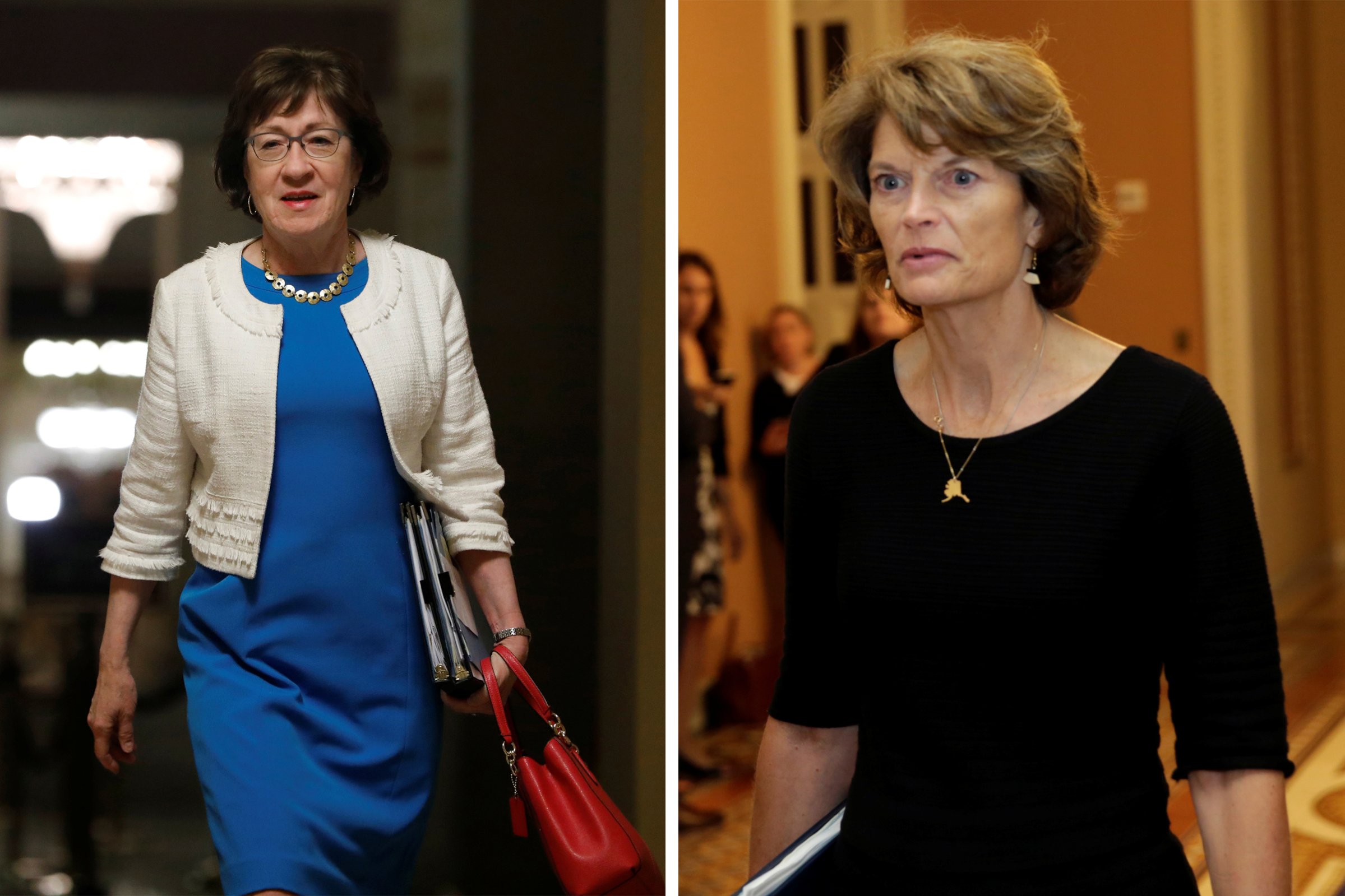
The Republican health care bill failed in the Senate after the defections of three key GOP members. But those votes — and many of the other obstacles that ultimately tripped-up the attempt to repeal the Affordable Care Act — did not come out of thin air. They were enabled by a massive grassroots protest movement against any major cuts to health coverage that was organized mostly by and for women.
While Sen. John McCain of Arizona defected from GOP leadership because of his objections to the unorthodox legislative process, Sen. Susan Collins of Maine and Sen. Lisa Murkowski of Alaska repeatedly cited the enormous outcry from their constituents as a reason for their consistent opposition. Thousands of new activists all across the country have spent the last seven months staging protests, visiting offices, writing postcards and making phone calls to urge their Senators to oppose the GOP health care plan. According to organizers, the vast majority of them were women.
Republicans have been promising to repeal and replace Obamacare for years, but extreme pressure from constituents made it harder than they ever imagined. To attribute the failure of the bill to internal politics alone is to ignore the hundreds of thousands of Americans who have spent the last six months begging their representatives not to slash their health care.
Planned Parenthood says its volunteers have made more than 200,000 phone calls to members of Congress against the health care bill, organized more than 2,200 events across the country in opposition to ACA repeal, and delivered more than a million petitions to members of Congress urging them not to defund women’s health care. Indivisible, a resistance organization that is dedicated to obstructing President Trump’s agenda, has been focusing on stopping the GOP health plan for the last six months– 74% of their email subscribers are female, and most of their local groups are led by women. There are 16 Indivisible groups in Alaska, 62 in Maine, and 141 in Arizona. And according to a survey by DailyAction, an anti-Trump group that sends text-message reminders to call Congress, 86% of their users are women.
Women didn’t just flood the phone lines– they showed up to confront Senators and their staff in person in overwhelming numbers. Michelle Morrison and Elena Hung led the Little Lobbyists, a group of parents that spent weeks touring Capitol Hill with their chronically-ill children urging the Senate to preserve Obamacare. Angela Lorio and Jessica Michot piled their disabled children into a bus to drive 25-hours from Louisiana to beg Sen. Bill Cassidy to vote “no” on the Senate bill (he voted yes). A West Virginia reverend came to Washington to urge Sen. Shelley Moore Capito to vote “no” on repeal for the sake of her cancer-stricken daughter (she voted yes). A 10-year old diabetic girl in Maine traveled to Collins’s Bangor office with her mother to urge the Senator to preserve the ACA. After Collins came out against the bill, her constituents started making memes of her as “Wonder Woman,” urging her to stay strong.
In Maine, where 10,000 people rely on Planned Parenthood health centers, more than 300 new Planned Parenthood volunteers hosted 155 events asking Collins to resist defunding the women’s health program, according to the organization. Receiving 10,000 signed petitions from her constituents can go a long way toward stiffening a Senator’s spine.
“Millions of women across the country rely on Planned Parenthood for family planning, cancer screening, and basic preventive health care services,” Collins said in her statement explaining why she voted against her party’s bill. “Denying women access to Planned Parenthood not only runs contrary to our goal of letting patients choose the health care provider who best fits their needs, but it also could impede timely access to care.”
Local Planned Parenthood organizers say that Collins was significantly more receptive to meeting with them than other Senators have been. When four Maine Planned Parenthood patients came to Washington D.C. to ask Collins to preserve funding, they were whisked to the Senate floor to meet with the Senator personally, while other visitors to the Capitol are often relegated to meeting with staff members. “She was really invested, she wanted to hear from us,” says Nicole Clegg, Vice President of Public Policy at Planned Parenthood in Northern New England. “Everyone was star-struck.”
In Alaska, where 7,300 people get their health care from Planned Parenthood, the group says 237 new volunteers organized almost 100 events. Murkowki has said that when she returned to Alaska over the 4th of July recess, the vast majority of Alaskans she met urged her to reject the Senate bill. “Almost without exception, it was, ‘Please Lisa. Protect Alaska’s interests,” she said. “Help us with ensuring that the most vulnerable are cared for, and that when it comes to the access issues that we face, the costs that we face, that you can help us address these.'”
Thousands of ordinary women across the country were pleading with their representatives to save their family’s health care. And two powerful women listened.
More Must-Reads From TIME
- The 100 Most Influential People of 2024
- Coco Gauff Is Playing for Herself Now
- Scenes From Pro-Palestinian Encampments Across U.S. Universities
- 6 Compliments That Land Every Time
- If You're Dating Right Now , You're Brave: Column
- The AI That Could Heal a Divided Internet
- Fallout Is a Brilliant Model for the Future of Video Game Adaptations
- Want Weekly Recs on What to Watch, Read, and More? Sign Up for Worth Your Time
Write to Charlotte Alter at charlotte.alter@time.com